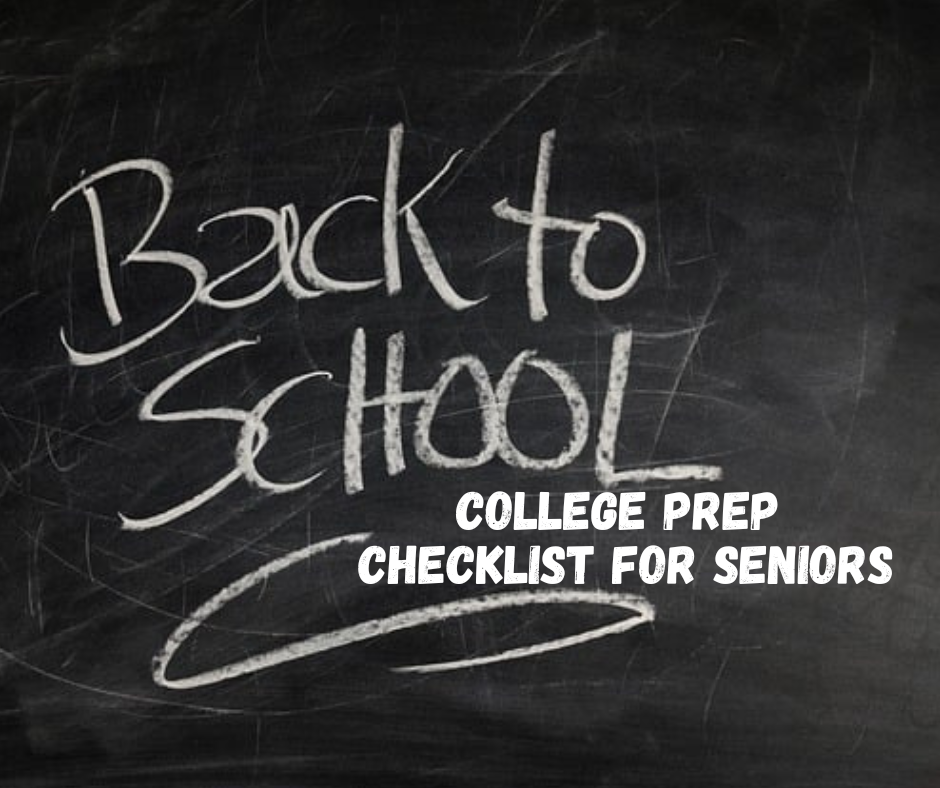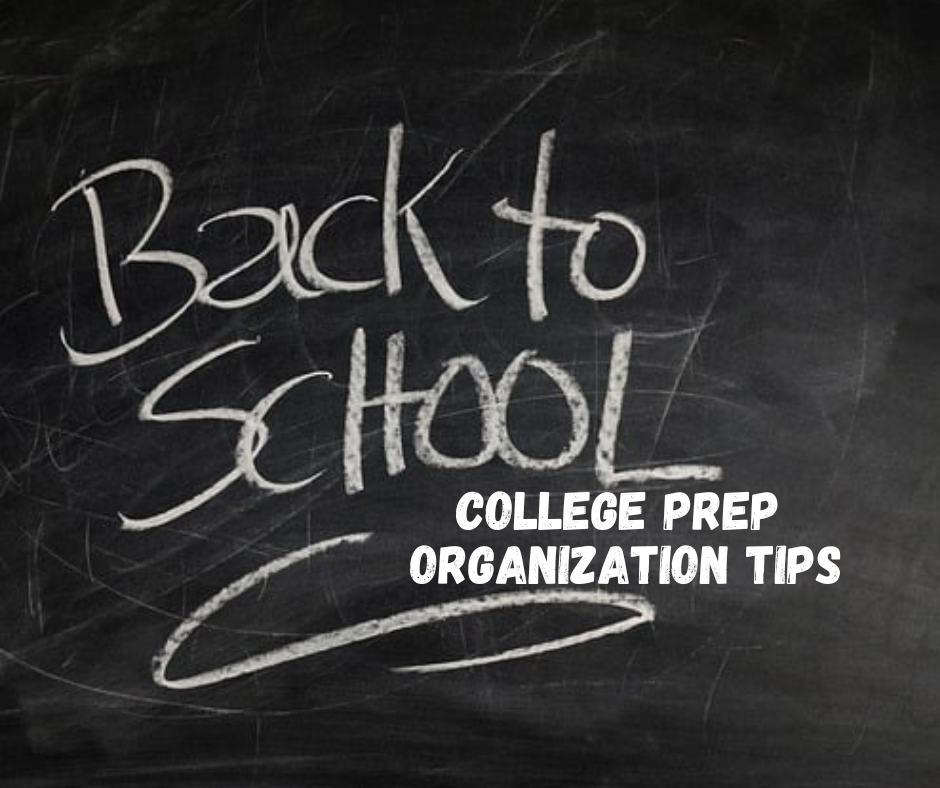Financial aid is on the minds of every soon-to-be college student and their families. Will you qualify? How much will you receive? How do you apply? How do the colleges disperse the aid? No matter where you are in the college application process, you should avoid these six financial aid mistakes that could cost you thousands.
Continue reading 6 Financial Aid MistakesBack to School: College Prep Checklist for Seniors
Getting a head start on college prep can make the fall and spring less stressful for parents and students. Seniors will need to be prepared for the overwhelming amount of college admissions activities once school begins. Tackling (or preparing) for those college related tasks now can help ease some of the pressure in the fall. Get ahead of the game and prepare in advance; be ready for your student’s senior year to begin with this college prep checklist.
Continue reading Back to School: College Prep Checklist for SeniorsParent Survival Guide for Cross-Country College Moves
Once your child decides they want to move cross-country for college, a mix of emotions arise: pride, dread, excitement – perhaps even the urge for something strong like coffee (or maybe stronger!). Don’t fret though; we are here to help guide this new chapter with ease and possibly even bring smiles or laughter along the way!
Continue reading Parent Survival Guide for Cross-Country College MovesBack to School: 9 Tips for Managing Your Finances
With consumer finances facing further turbulence following the announcement of the August resumption of U.S. student loan repayment, young Americans are bracing themselves for a financial squeeze in advance of the holidays.
With evidence that shoppers are already showing caution – the savings experts at SimplyCodes have put together some practical money advice for young consumers on how to navigate an increasingly compressed disposable income and how to better manage student loan repayments being back on the list of monthly expenses.
Continue reading Back to School: 9 Tips for Managing Your FinancesBack to School: College Prep Organization Tips
We all want to stay organized. We spend hours watching “how to” videos on organization tips from our closets, to our kitchens, to our drawers and more.
Believe it or not, research reveals that Americans spend an average total of 2.5 days a year looking for misplaced stuff. That’s nearly half a workweek we lose just searching for things. But time lost isn’t the only costly consequence of being forgetful.
The study also shows that 60% of people have either been late to work or school because of lost items, followed by 49% who have missed appointments or meetings, and even 22% who’ve missed flights, trains, or bus rides. Turns out misplacing things can be more than just expensive; it’s a major time drain too. Don’t let the lack of organization cost you and your student. Make organization a priority.
Continue reading Back to School: College Prep Organization TipsBack to School Tips for High School Parents
It’s that time of year again and your college-bound teen is headed back to school. Every year presents opportunities to get a leg up on the college process. If you and your teen plan strategically before school starts, you’ll have some goals and be able to hit the ground running.
Here is a quick list of back to school tips, broken down by each grade level. The activities are to be done just as soon as your teen gets back to school:
Continue reading Back to School Tips for High School ParentsLock Socket®: Keep Track of Your Student’s Charging Chords
Whenever I come across a product or service that I think will help students and/or their parents, I like to share it. Check out Lock Socket® if you have a student heading to college or your high school student keeps losing their charging chord!
Lock Socket® has introduced its patent-pending phone charger and cable lock that provides a creative solution for a common problem. Keeping track of a smartphone or tablet charger and cable can be an arduous task, especially in high-traffic areas. Lock Socket® charger locks are designed to fit factory provided chargers and keep them in place in outlets where they belong.
Continue reading Lock Socket®: Keep Track of Your Student’s Charging ChordsBack to School: Preparing for Upcoming College Expenses
For the next several days, I’m going to be sharing some Back to School tips for parents. These tips will be for current high school parents and those parents whose students are heading off to college.
Today’s tips are for parents of current college students, especially those who are heading to college for the first time.
Continue reading Back to School: Preparing for Upcoming College ExpensesUnderstanding College Financial Aid
Those two little words, “financial aid” can be music to a parent’s ears. I know they were to mine. But I had no idea the different types of aid available or the varying awards that colleges can make when they offer admission.
I was surprised to find that private colleges tend to be generous with their merit aid because they have institutional funds available; while public universities will offer less aid because of their strict budgets and large student populations. That’s why private colleges can often cost less than a public university even though their price tags are higher.
When my daughter applied to college we knew we were going to need help paying for it. Since we were not in the financial category that would receive federal grants, we hoped for other types of aid in the form of college grants and scholarships. Some of the colleges she applied to were private universities and some were public. When accepted, she received varying degrees of financial aid awards from the different colleges, both public and private.
One state university offered her aid in the form of student loans, but no grants or scholarships. Another private college offered her a full-ride in the form of a four year scholarship meeting 100 percent of the financial need. Her first choice college, a private university, offered her student loans, work study and parent loans, which did not meet the balance of our EFC (Expected Family Contribution). This is called “gapping” and colleges often do this to students who are accepted but do not qualify for merit aid. The college she chose offered a combination of awards: college grants, honor scholarships, student loans, and work study that met the difference between the cost of the college and our EFC. It wasn’t the full-ride or her first choice, but it was her second choice and was a perfect fit for her.
Continue reading Understanding College Financial AidThe Future of Learning is Here
Traditional learning and teaching methods are no longer sufficient to meet the ever-increasing demands and challenges. As a result, the future of learning has been reshaped, ushering in a new era of educational practices, capabilities, and possibilities. From virtual reality and artificial intelligence to personalised learning and collaborative platforms, the future of education is here, and it promises to revolutionise the way we acquire knowledge, develop skills, and prepare for the challenges of tomorrow. Join us on this exhilarating exploration of the educational frontiers, where students become active participants in their learning journeys and traditional classroom boundaries are transcended. The future of learning has arrived, brimming with opportunities and transformative potential.
Continue reading The Future of Learning is Here








